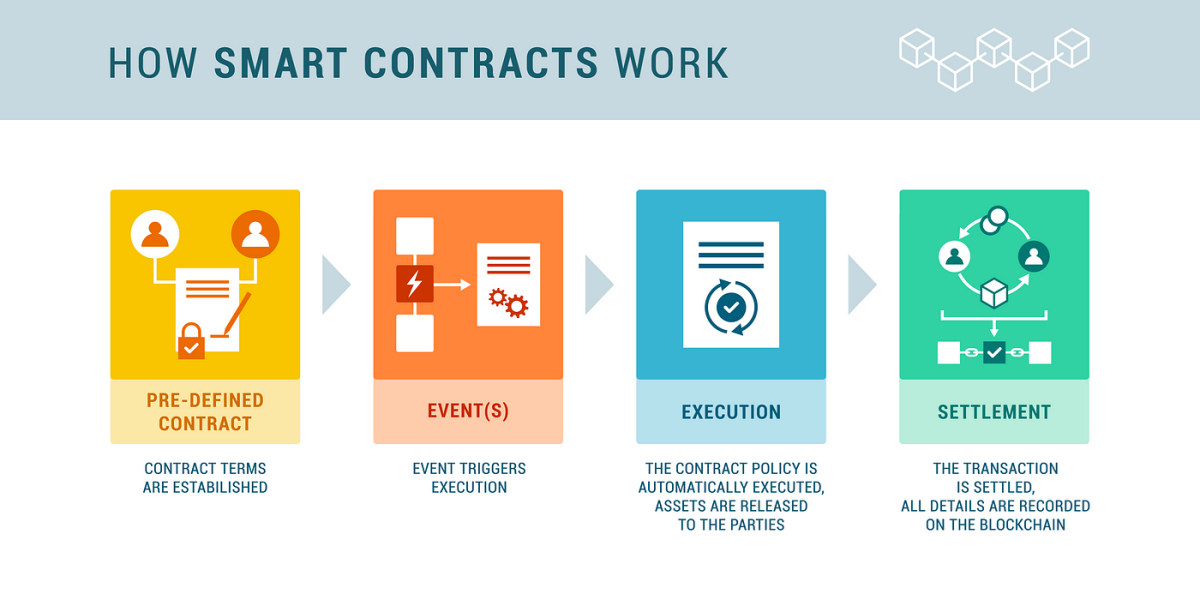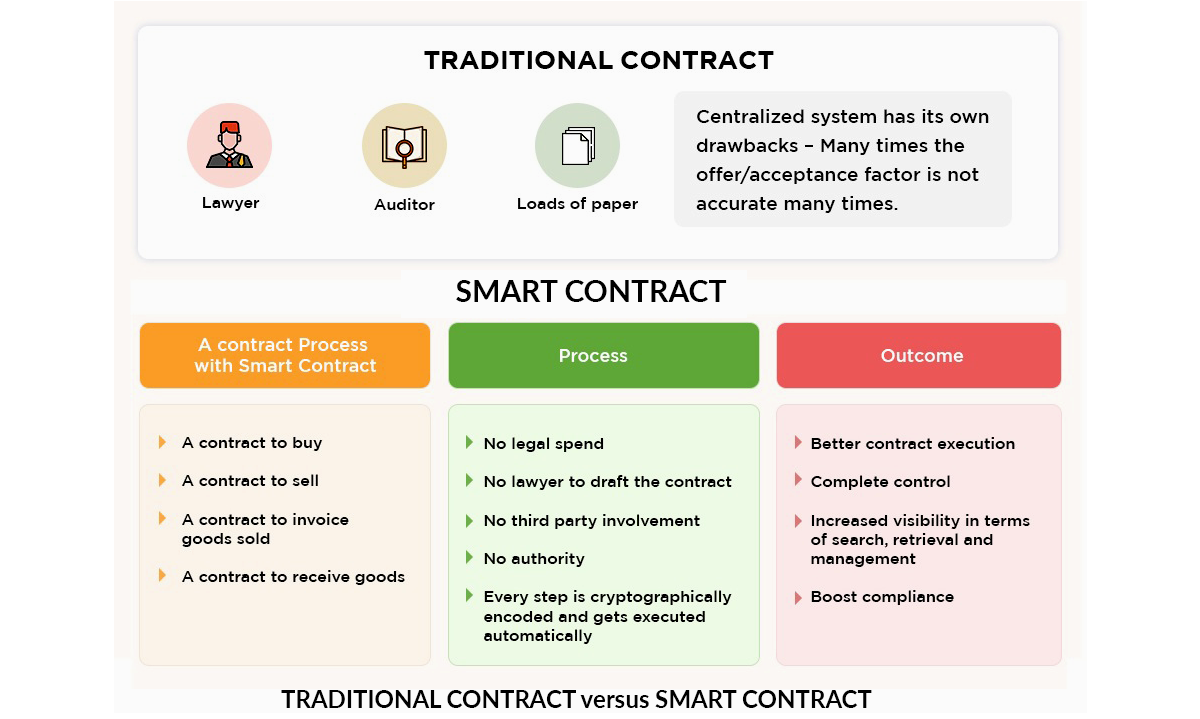Smart Contract
Smart contracts are self-executing digital agreements whose terms are written directly into code. They enable secure, automated, and reliable transactions without the need for intermediaries in blockchain-based systems.
- What is a Smart Contract?
- How Do Smart Contracts Work?
- Key Features of Smart Contracts
- Common Use Cases
- Areas and Applications of Smart Contracts
- Pros and Cons of Smart Contracts
- Pros of Smart Contracts:
- Cons of Smart Contracts:
- Smart Contracts vs. Traditional Contracts
- Smart Contracts vs Traditional Contracts Differences
- Frequently Asked Questions (FAQ) about Smart Contracts
What is a Smart Contract?
A smart contract is a self-executing digital agreement written in software code and stored on a blockchain. It is executed automatically when predefined conditions are met, eliminating the need for intermediaries.
Smart contracts are most often associated with the Ethereum network, but can also run on other blockchains that support programmable logic.
How Do Smart Contracts Work?
Smart contracts are deployed on the blockchain and operate according to an “if-then” logic:
- If condition X is met, then action Y is triggered.
For example, in a decentralized crowdfunding campaign, a smart contract could be programmed to release funds only if a certain funding goal is reached by a set deadline. If the set fundraising goal is not reached, the funds are automatically returned to the contributors - no human intervention is required.

Once deployed, smart contracts are immutable and transparent, meaning their terms and code are publicly available and cannot be changed.
Key Features of Smart Contracts
- Autonomy - no need for third-party enforcement.
- Reliability - parties do not need to trust each other, only the code.
- Speed and Efficiency - transactions are executed almost instantly once the conditions are met.
- Security - stored on decentralized, tamper-proof blockchains.
- Transparency - Anyone can see the contract logic and execution history.
Common Use Cases
Smart contracts support a variety of use cases in decentralized systems, such as:
| Scope of Application | What are They Used for? |
| Decentralized Finance (DeFi) | Automated lending, cryptocurrency staking, and swaps without banks or brokers. |
| NFTs and Gaming | Handle royalties, asset ownership, and in-game mechanics. |
| Supply Chain | Trigger shipments or payments when items are scanned or delivered. |
| Insurance | Automate claim payments when an event is confirmed (e.g., flight delays). |
| Real Estate | Manage escrow and title transfers with reduced paperwork. |
Pros and Cons of Smart Contracts
Pros of Smart Contracts:
- Eliminate intermediaries
- Reduce costs
- Reduce fraud
- Increase transparency and efficiency of operations
Cons of Smart Contracts:
- Coding errors can lead to irreversible losses
- Not legally binding in all jurisdictions
- Difficult to audit or fix once deployed
Smart Contracts vs. Traditional Contracts
| Comparison Aspect | Smart Contracts | Traditional Contracts |
| Execution | Automatically via code | Manually, often via lawyers |
| Trust Required | Trust in code | Trust in people and institutions |
| Execution Speed | Instantly or almost instantly | Days or weeks |
| Execution | On the blockchain | Through legal systems |

Frequently Asked Questions (FAQ) about Smart Contracts
- What is a Smart Contract?
- A smart contract is self-executing code on a blockchain that automatically executes the terms of an agreement when certain conditions are met. It eliminates intermediaries, reduces costs, and enables secure, trustless transactions in finance, gaming, real estate, and more.
- Are Smart Contracts Legally Binding?
- In many jurisdictions, smart contracts are not yet legally binding on their own. However, they can support legally binding agreements when combined with traditional legal frameworks. Legal acceptance is growing as regulations and the digital economy evolve.
- Can Smart Contracts Be Modified After Deployment?
- No. Once deployed on the blockchain, smart contracts are immutable. This provides security, but also makes it difficult to fix bugs or vulnerabilities without complex workarounds, such as contract migration.
- What Programming Languages are Used to Write Smart Contracts?
- The most popular programming language for smart contracts is Solidity, used primarily on the Ethereum blockchain. Other blockchains use languages such as Rust (Solana blockchain), Vyper, or Move (for Aptos and Sui).
- Are Smart Contracts Only Used in Cryptocurrency?
- No. Although they originated in crypto ecosystems, smart contracts are now being adopted for real-world use cases, in areas such as logistics, insurance, digital identity, and even voting systems.
- Is it Safe to Rely on Smart Contracts?
- When properly audited, smart contracts can be very secure. However, vulnerabilities in the code can lead to exploits. Always engage with trusted and reputable protocols.